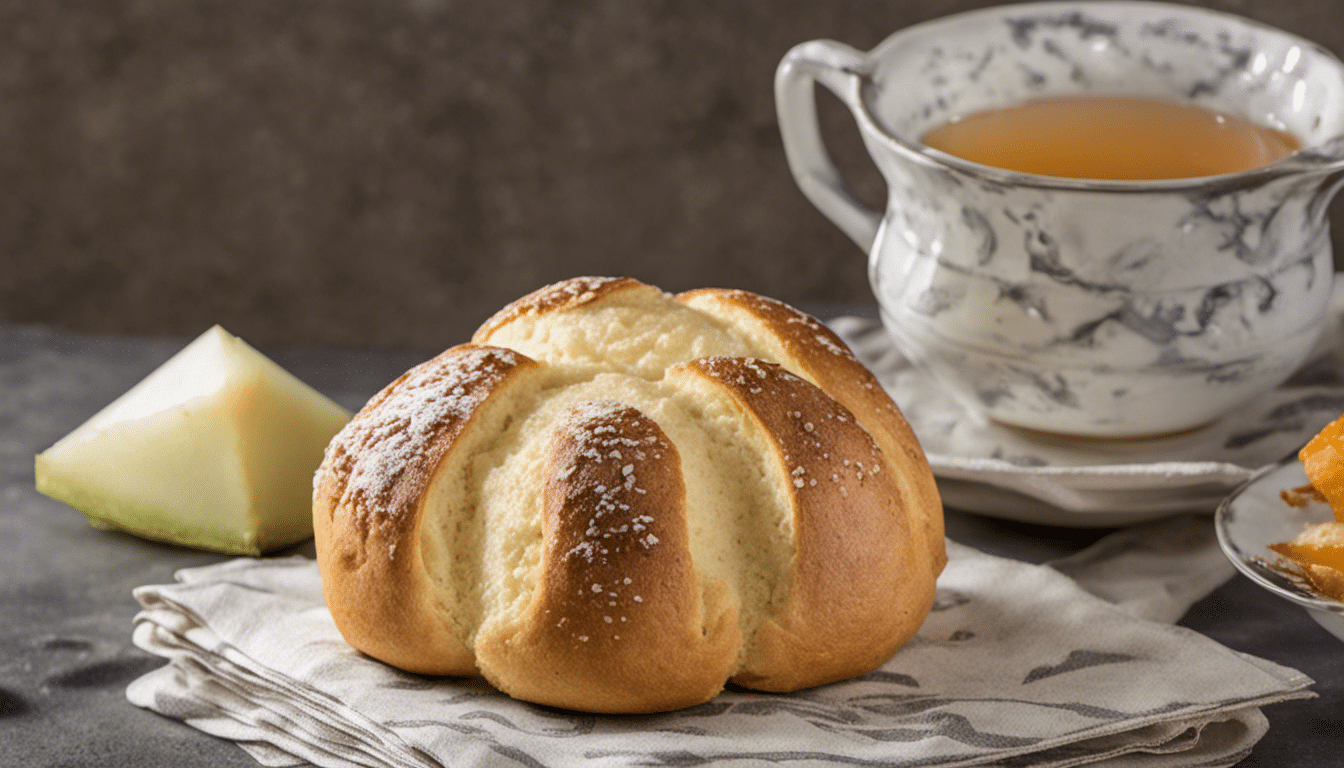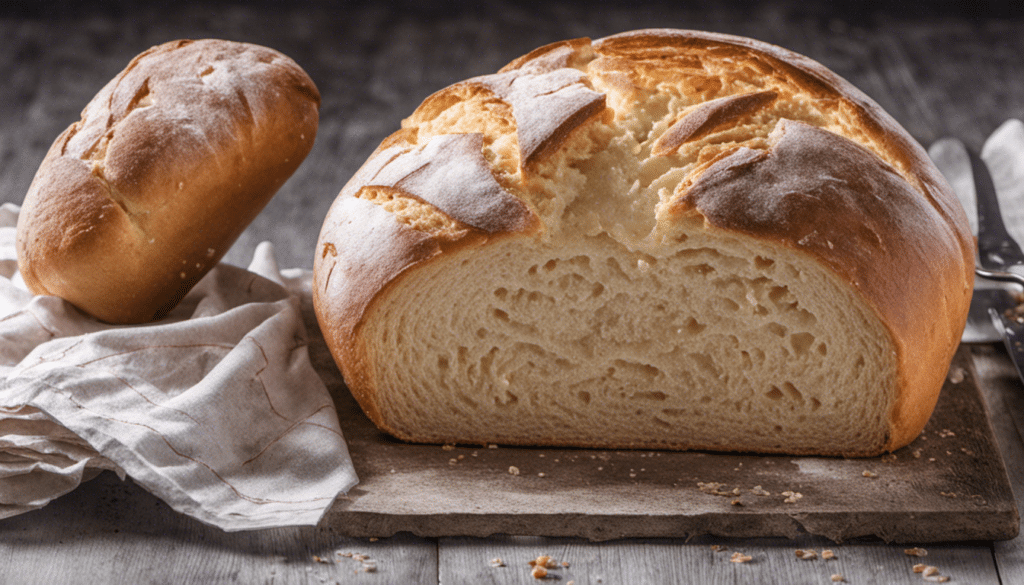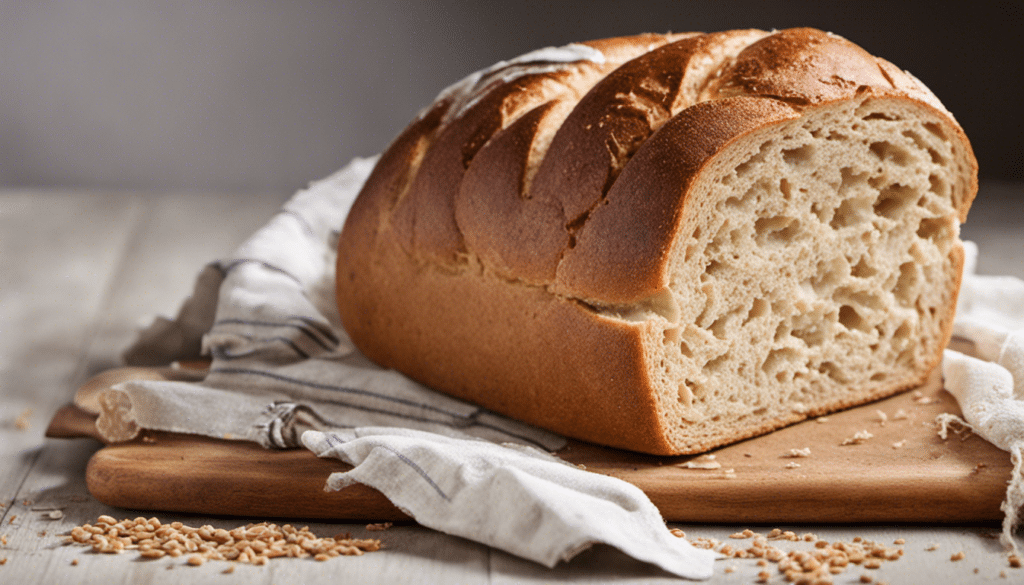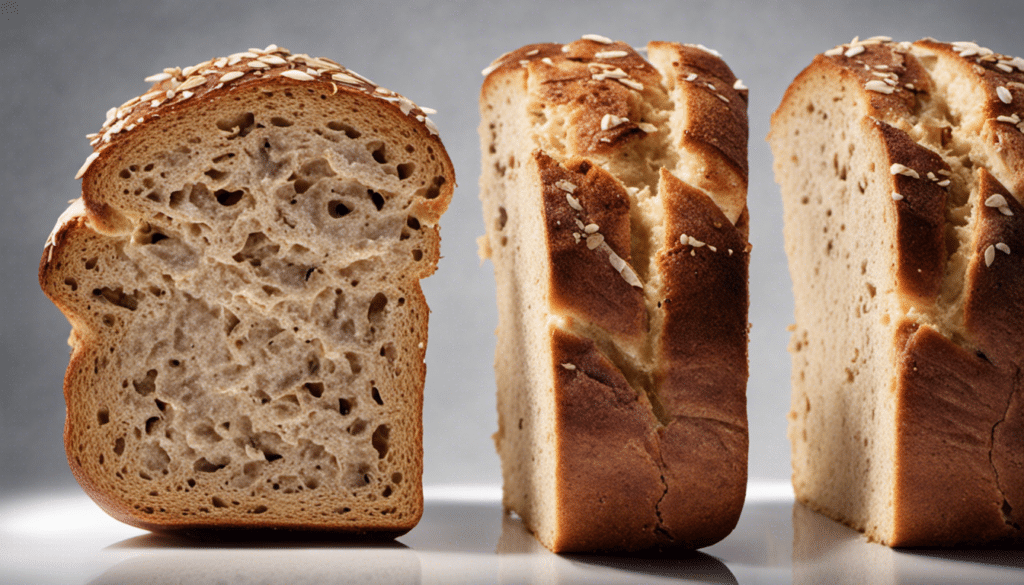| Prep: 2 hours | Cook: 12 mins – 15 mins | Difficulty: Intermediate | Serves: 6 |
| 1/2 cup and 1 tablespoon of warm water | 1 1/2 teaspoons of active dry yeast |
| 3 cups of all-purpose flour | 2 tablespoons of sugar |
| 1/2 teaspoon of salt | 1 large egg |
| 1/2 cup and 1 tablespoon of warm milk | 2 tablespoons of unsalted butter |
| For Cookie Dough: | |
| 1/2 tablespoon of unsalted butter | 3/4 cup of powdered sugar |
| 1 large egg white | 1 1/4 cups of cake flour |
| kcal | fat | saturates | carbs |
| 356 | 8.5g | 4.5g | 60g |
| sugars | fibre | protein | salt |
| 18g | 2g | 9g | 0.25g |
About Melonpan

A golden sphere of sweet bliss, Melonpan is a Japanese culinary delight that tells a story of sweet juxtaposition. Its name may have you expecting a rhapsody of tropical flavors, but upon sinking your teeth into this delightful delicacy, you’ll find a truth that is fascinating in its own unique manner. Made from a combination of ordinary bread dough and cookie dough, Melonpan possesses a dichotomy of texture that complements beautifully in your palate.
A Peek into the Origin
Traditionally it is believed that the first variant of Melonpan was shaped like European melons, providing the visual inspiration for its name. However, any expected fruity flavor is conspicuously absent; the only sweetness stemming from the sugar used in the cookie dough crust. Serious Eats dives deeper into the charismatic world of this classic Japanese bread.
The Culinary Craftsmanship of Melonpan
Crafting a Melonpan from scratch is an exercise in baking mastery, as it essentially involves baking a soft, rich bread loaf within a sweet, crisp cookie. Achieving the perfect balance between the layers requires a skilful hand and an understanding of just how the ingredients interact. One crucial tip to remember is to ensure the cookie dough enveloping the bread does not get stretched or strained while wrapping, which could potentially disrupt the unique dual-textured charm of the Melonpan. Food Network shares a detailed process of this meticulously intriguing baking process.
Playing the Perfect Accompaniment
On its own, Melonpan is a dessert par excellence. But when matched with a sumptuous matcha tea or your favourite cup of cappuccino, it effortlessly transforms into a comforting breakfast or evening snack. Its simplicity and unimposing nature allows it to shine just as bright when served alongside a main course too; consider serving with Sukiyaki or Katsudon for a truly authentic Japanese dining experience.
Whether you are on a voyage of understanding different global breads or a baking enthusiast looking for your next culinary challenge, Melonpan deserves a spot in your list. Its dual-textured design and contrasting flavor profiles, coupled with a hearty filling, paints a mouthwatering picture that draws you towards the oven. Here’s to an afternoon well spent baking (and enjoying) your very own Melonpan.
What You’ll Need
- 1/2 cup and 1 tablespoon of warm water
- 1 1/2 teaspoons of active dry yeast
- 3 cups of all-purpose flour
- 2 tablespoons of sugar
- 1/2 teaspoon of salt
- 1 large egg
- 1/2 cup and 1 tablespoon of warm milk
- 2 tablespoons of unsalted butter
- For Cookie Dough:
- 1/2 tablespoon of unsalted butter
- 3/4 cup of powdered sugar
- 1 large egg white
- 1 1/4 cups of cake flour
Method
Step One
Dissolve the active dry yeast in warm water and set aside for about 5 minutes, until it’s frothy.
Step Two
In a large bowl, combine the all-purpose flour, sugar, and salt.
Step Three
Make a well in the center of the dry ingredients and pour in the yeast mixture, large egg, and warm milk.
Step Four
Mix the ingredients until a dough forms, then add the unsalted butter and continue mixing until the dough is smooth and elastic.
Step Five
Cover the bowl with a damp cloth and let it rise in a warm place for about an hour, or until the dough has doubled in size.
Step Six
While the bread dough is rising, you can prepare the cookie dough. Cream the butter and powdered sugar together in a separate bowl until it’s well mixed.
Step Seven
Add the egg white to the butter mixture and mix well. Then slowly add the cake flour, continually mixing until a cookie dough forms.
Step Eight
Divide the cookie dough into equal portions and place them in the refrigerator to chill.
Step Nine
Once the bread dough has risen, divide it into equal portions and shape each one into a ball.
Step Ten
Take the chilled cookie dough portions and roll each one out into a flat circle.
Step Eleven
Cover each bread dough ball with a cookie dough circle, then score patterns on top of the cookie dough with a knife.
Step Twelve
Bake the melonpan in a preheated oven at 350 degrees for about 25 minutes, or until golden brown. Enjoy them warm for best taste!



